The GDR day will be organized on Thursday 30 October (afternoon) and Friday 31 October (morning) by Pascal Xavier (GDR DEFIE) and Aurelian Crunteanu (GDR Ondes).
The three first plenary speakers are scheduled on Thursday. The four last ones are scheduled on Friday. The GDR Day is a free event and is opened to each attendee of the conference (separated registration is available at this link).
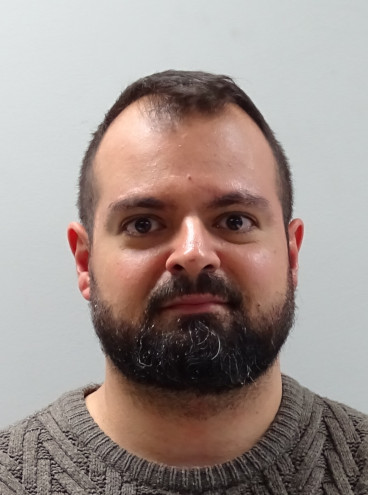
Title: All-printed, flexible, organic thermoelectric devices for environmentally friendly energy harvesting.
Abstract: Environmental degradation and fossil fuel depletion are driving research towards efficient, eco-friendly energy technologies. Thermoelectric materials, which convert waste heat into electricity, have gained attention over the past two decades. Organic semiconductors (OSCs), including conjugated polymers and small molecules, are emerging as promising candidates due to their room-temperature processability, flexibility, and mechanical robustness. This work presents the fabrication and characterisation of fully printed organic thermoelectric generators on flexible polyimide substrates. The study covers ink formulation, structural design, and complete thermoelectric characterisation. These findings support the development of flexible, low-cost, printed thermoelectric generators.
Dr. Giorgio Mattana received the M. Sc. degree in Electronic Engineering in 2008 and the Ph.D. degree in Electronic and Computer Science Engineering in 2011 from the University of Cagliari, Italy. He joined the Ecole Polytechnique Fédérale de Lausanne in Switzerland in 2011 as a post-doctoral researcher, then he moved to Bordeaux, France, for a second post-doctoral experience. He joined the ITODYS Laboratory, University Paris Cité, as an Associate Professor in 2015. His research interests include printed and organic electronics, in particular for the fabrication of thermoelectric generators but also for the development of chemical and biological sensors.
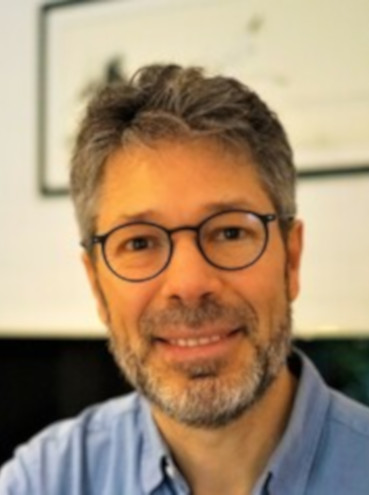
Title: Circular electronics, give back L’électronique circulaire, giving time back to our technologies
Abstract: Facing accelerating obsolescence and ewaste explosion, we urgently need to rethink the way we design, use and recycle our electronic systems. This presentation explores the technical levers for extending the life of components: robustness, repairability, modularity, reuse. We will also look at the current regulatory, economic and industrial obstacles to circularity. And what if real progress was no longer to be found in maximum performance, but in the sustainability of our technosphere?
Jean-Pierre RASKIN is a full professor at the Ecole Polytechnique de Louvain at UCLouvain. His area of expertise is applied semiconductor physics in the field of high-frequency micro and nanoelectronics, as well as sensor design. He is head of a research group at UCLouvain that includes more than 40 researchers. He also holds a Carnot Excellence Chair in Eco-innovation at the CEA in Grenoble, France. He is the author or co-author of more than 400 articles published in peer-reviewed scientific journals. He has received several international awards for his pioneering work in nanoelectronics. He was elected a full member of the Royal Academy of Belgium in 2023.

Title: The limits of eco-design and of environmental impacts – For an environment-oriented design.
Abstract: The aim is to show how product-oriented eco-design is necessary, but still insufficient. The environmental indicators do not take into account our relationship with the product, and yet it is this relationship that needs to be changed in “environment-oriented design”, which is the only guarantee of sustainability.
Victor PETIT is Associate Professor at the Université de Technologie de Troyes. His research activities lies at the crossroads of the philosophy of technology and the philosophy of ecology.
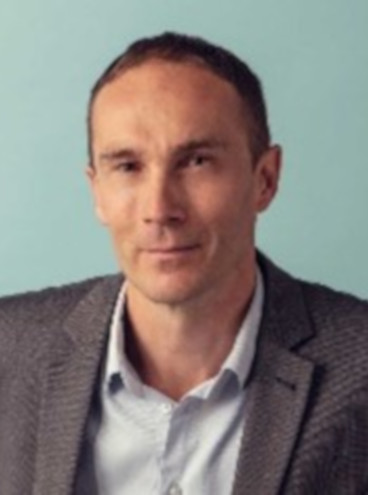
Title: Ultra-Low Power Neuromorphic Technology Applied to IoT
Abstract: Neuromorphic technologies are inspired by the functioning of the brain to design electronic circuits capable of processing information in a distributed, parallel, and adaptive manner. By replicating neural and synaptic mechanisms, these devices enable local data processing, thereby reducing communication needs and overall energy consumption. This approach is particularly well-suited to Internet of Things (IoT) applications, where devices are often energy-constrained and deployed in remote environments. Integrating neuromorphic components into IoT sensors allows real-time, on-site signal analysis (audio, radio, vibration, etc.) while significantly extending device autonomy. Combined with bio-inspired strategies for data acquisition and decision-making, this technology paves the way for intelligent, ultra-low-power embedded systems. It has promising applications in healthcare, industry, smart cities, and environmental monitoring. Current research focuses on developing CMOS-compatible devices and exploring new processing paradigms.
Christophe LOYEZ is a CNRS Research Director at the Institute of Electronics, Microelectronics and Nanotechnology (IEMN). Since 2015, he is the head of the CSAM (Circuits & Systems for Applications of Microwaves) research group, composed of more than 10 researchers, whose research activities concern the energy efficiency of information transmission and processing systems. Member of the organizing committee of the IEEE Solid State Circuit French Chapter, he is also co-responsible for the e-COST joint laboratory “Enhanced Communication devices for Smart cities and Transports”, which brings together more than 20 researchers from the IEMN and the Gustave Eiffel University on the themes related to the smart cities and transport. Its research activities focus on the energy efficiency of bioinspired acquisition systems (radiofrequency, acoustic, etc.) and information processing systems (integrated neuromorphic devices).
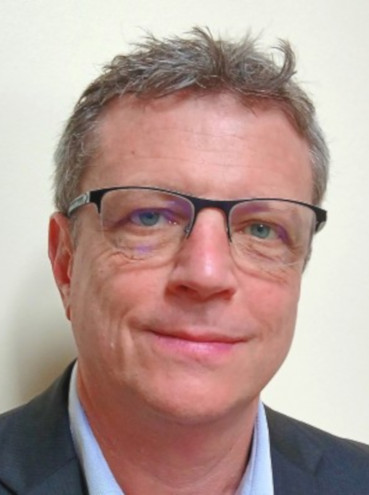
Title : Two examples of sustainability analysis of 5G/6G cellular networks
Abstract: This talk looks at the issue of analysing the impact on the sustainability of new cellular telecoms technologies, using two examples. The first study shows the value of an energy consumption model for the 6G radio infrastructure, upstream of its design phase. The second example presents an instrument for assessing the impact of 5G network deployment on the EM exposure of smartphone users.
Serge Bories graduated from ENAC (Toulouse) in 2002 and defended his doctoral thesis in 2006 at ENSTA (Paris) on the design of UWB antennas. He has then joined the antenna and propagation laboratory at CEA-Leti (Grenoble). His areas of research include the design of reconfigurable broadband antennas and the development of methods and instruments for characterising antennas and EM exposure. Two decades of work on these different technologies have now made it possible to tackle the more global issue of impact analysis (on the 3 pillars of sustainability) of technologies as complex as the radio infrastructure of future cellular networks.
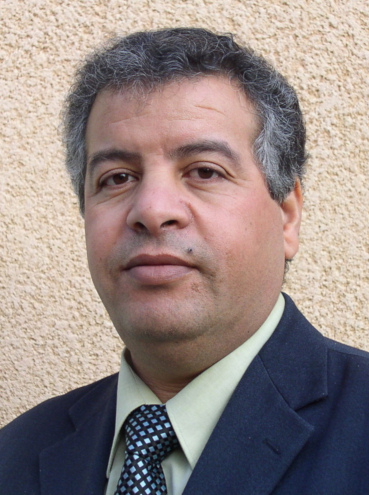
Title: On the impact of RFID tag substrate on wireless communication performance
Abstract: The diversity of environments where RFID tags are used or are being developed is very important. This diversity has resulted in the abandonment of the notion of a universal tag. Indeed, depending on the characteristics of the environment considered, the tags used can have very different shapes and materials. Among the important parameters, the materials composing the tag will have a very strong impact on the performance of RFID communication. In this communication we discuss different practical situations and choices of substrate ranging from “noble” substrates to very exotic substrates. We will mainly consider the case of RFID-UHF tags and discuss recent solutions based on paper and composite materials.
Smail TEDJINI received the Master in Electrical Engineering in 1979 from Grenoble University, the Doctorat 3rd cycle in Microwave in 1982 from Grenoble Institute of Technology and Doctor d’Etat in Physics from Grenoble University in 1985. He was Assistant Professor at the Electronics Dpt. of Grenoble Institute of Technology (Grenoble-inp) from 1981 to 1986, and Senior Researcher for theCNRS (Research French National Center) from 1986 to 1993. He became University Full Professorin 1993 and since 1996 he is Professor at the esisar, Embedded Systems Dpt. of Grenoble-inp. His main teaching topics concern Applied Electromagnetism, RadioFrequency, Wireless Systems and Optoelectronics. Now he has nearly 40 years experience in academic education, Research and management of university affairs. He served as the Director of esisar, Dpt. of Grenoble-inp. His main topics in research are applied electromagnetism, modeling of devices and circuits at both RF and optoelectronic domains.Current research focus on wireless systems with special attention to RFID technology & its applications. He is the founder in 1996 and past Director of the LCIS Lab. Now, he is project manager within ORSYS group that he leaded until 2014 and founded 25 years ago. He supervised nearly 50 PhD and he has more than 350 publications, 7 patents and co-edited two books. He served as Examiner/reviewer/opponent for tens of Ph.D. degrees for universities in many countries (France, Germany, Finland, Spain, Ireland, Italy, Sweden, Vietnam, Australia, Singapore, India, Brazil, Egypt, Maghreb…). He supervised tens of research contracts with public administrations and industries. He is Member of several TPC and serves as expert/reviewer for national and international scientific committees and conferences including journals such as Piers, IEEE (MTT, AP, Sensors, MGWL, JRFID, Access), IET, Piers,MDPI, URSI, He served as project expert for French and international research programs (ISO, ANR,OSEO, European Programs, FNQRT, CNPQ…).

Title: The challenges of responsible digital technology – infrastructures, energy sustainability, impacts and uses
Abstract: The digital world is not immaterial. Its physical reality has a growing environmental, societal and energy impact in terms of our uses, with a new acceleration linked to the emergence of artificial intelligence, resulting in the multiplication of data centres and computing needs. These issues represent challenges, threats and opportunities. After a presentation of the context and uses, the question of the limits of technologies and their impact (resources, greenhouse gas emissions, energy, etc.) will be raised. With a view to sustainable development and social responsibility, recommendations and examples of solutions will be put forward for individual and collective action towards a desirable and sustainable digital world.
Michel ROBERT is a Professor at the University of Montpellier and Director of the Centre Informatique National de l’Enseignement Supérieur (CINES), which houses one of the world’s leading supercomputers, ADASTRA. He teaches at Polytech Montpellier, where he holds the ISIA-Polytech Montpellier partnership chair in “Digital Responsibility, Ethics and Impact”. His research work at the LIRMM (Montpellier Computer Science, Robotics and Microelectronics Laboratory) focuses on the design and architectures of hardware-software integrated circuits and systems, with an emphasis on the energy efficiency of data centres, supercomputers, the impact of artificial intelligence and, more generally, the challenges of ‘responsible digital computing’.
He is President of the Science Section of the Montpellier Academy of Science and Letters, an honorary member of the Institut Universitaire de France, honorary director of the LIRMM and of the interdisciplinary laboratory of excellence ‘Solutions Numériques Matérielles et Modélisation pour l’Environnement et le Vivant’, of the Information structures and systems doctoral school, and honorary President of Montpellier 2 University (science and technology).
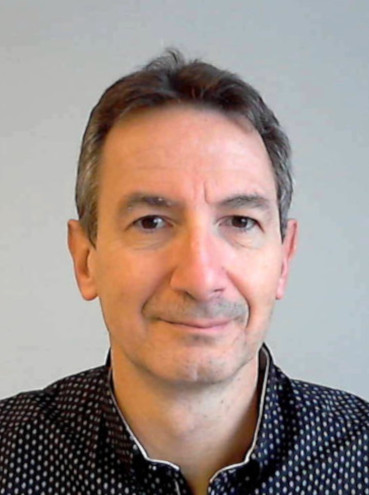
Title: Ecodesign applied to industrial connected objects
Didier BABOUT is an independent consulting engineer and trainer. With his Grenoble-based agency Convertgence, he helps companies in the electronics industry to reduce the environmental impact of their equipment, in particular through eco-design and the circular economy. Didier has 18 years’ experience in the design and management of electronics and microelectronics projects, and over 10 years’ experience in environmental consultancy for various industries.
